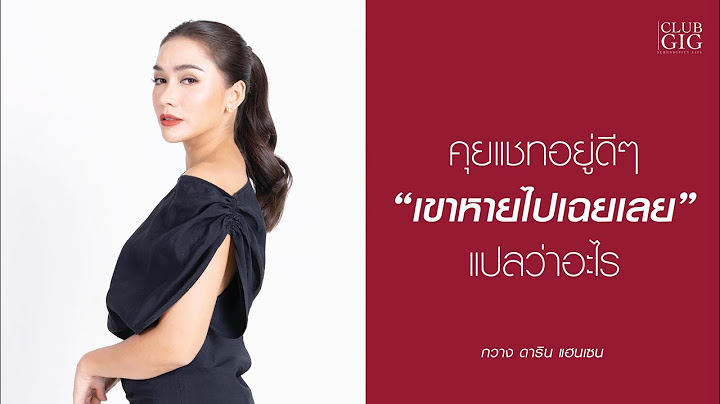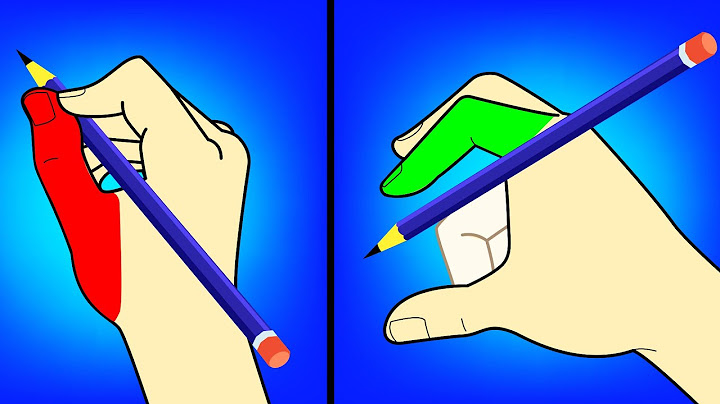Al-Dhamit, Y., & Kreishan, L. (2016). Gifted students’ intrinsic and extrinsic motivations and parental influence on their motivation: from the selfdetermination theory perspective. Journal of Research in Special Educational Needs, 16(1), 13-23. Show Dai, D. Y. (2020). Assessing and accessing high human potential: A brief history of giftedness and what it means to school psychologists. Psychology in the school, 57, 1514-1527. Dixon, F. A., Cross, T. L., & Adams, C. M. (2001). Psychological characteristics of academically gifted students in a residential setting: a cluster analysis. Psychology in the Schools, 38(5), 433-445. Erbas, A. K., & Bas, S. (2015). The contribution of personality traits, motivation, academic risk-taking and metacognition to the creative ability in mathematics. Creativity Research Journal, 27(4), 299-307. Gur, C. (2011). Do gifted children have similar characteristics?: Observation of three gifted children. Procedia Social and Behavioral Sciences, 12, 426-435. Hoque, E. (2016). Three Domains of Learning: Cognitive, Affective and Psychomotor. The Journal of EFL Education and Research, 2(2), 45-52. Kaewkangwan, S. (2013). Psychology of children and adults with special needs. (6thedition). Bangkok: Moh-Chao-Ban Publishing House. (in Thai). Kasemnet, L., Wongrattana, C., Jinnge, P., Khotchim, P. & Thongpukdee, T. (2014). The development of learning innovation for the parents and teachers of gifted child. Journal of Behavioral Science, 20(2), 155-170. (in Thai). Meier, E., Vog, K., & Preckel, F. (2014). Motivational characteristics of students in gifted classes: The pivotal role of need for cognition. Learning and Individual Differences, 33, 39-46. Office of the Education Council Ministry of Education. (2019). Research and development of the model mechanism for enhancing student discipline in educational institution fundamental education level, in area volunteering, selfless, empathy. Bangkok: Prikwangraphic. (in Thai). Potisita, C. (2019). The art and science of qualitative research: handbook for social science researcher and student. (8thedition). Bangkok: Amarin Printing & Publishing Public Company Limited. (in Thai). The Development and Promotion for Science and Technology (DPST). (2017). Project history DPST. Retrieved from http://dpst.ipst.ac.th/index.php/features (in Thai). The Institute for the Promotion of Teaching Science and Technology (IPST). (1982). Seeking, cultivating, and promoting scientific intuition: A study of scientific talented traits. Bangkok: IPST Press. (in Thai). The Institute for the Promotion of Teaching Science and Technology (IPST). (1986). Thedevelopment of scientifically talented tests: measure of scientific interested trait. Bangkok: IPST Press. (in Thai). The Institute for the Promotion of Teaching Science and Technology (IPST). (1987a). The development of scientifically talented tests: scientific attitude test. Bangkok: IPST Press. (in Thai). The Institute for the Promotion of Teaching Science and Technology (IPST). (1987b). The development of scientifically talented tests: scientists personality inventory. Bangkok: IPST Press. (in Thai). Wellisch, M., & Brown, J. (2013). Many faces of a gifted personality: characteristics along a complex gifted spectrum. Talent Development & Excellence, 5(2), 43-58. Wiley, K. R. (2020). The social and emotional world of gifted students: Moving beyond the label. Psychology in the Schools, 1-14, doi: 10.1002/pits.22340. Yusof, R., Ishak, N. M., & Zahidi, A. M. (2015). Leadership characteristic among gifted and talented students at Malaysia national gifted center. International Journal of Scientific Research, 4(8), 588-594. Zeidner, M., & Shani-Zinovich, I. (2011). Do academically gifted and nongifted students differ on the Big-Five and adaptive status? Some recent data and conclusions. Personality and Individual Differences, 51, 566-570. Zeidner, M., & Shani-Zinovich, I. (2013). Research on personality and affective dispositions of gifted children: the Israeli scene. Gifted and Talented International, 28, (1-2), 35-50. วิธีหา ทักษะความสามารถพิเศษ มีอะไรบ้าง ที่น่าเอามาเขียน ลงใน ประวัติส่วนตัว หรือ เรซูเม่ นั้น เราจะต้อง เลือกทักษะ ให้เฉพาะ และ ตรงกับงานที่กำลังจะสมัคร ถึงแม้ว่า เราจะมี ความสามารถพิเศษ มากมาย แต่ถ้า มันไม่ตรงกับ คุณสมบัติ หรือ สิ่งที่บริษัทต้องการ มันก็ไม่พิเศษอีกต่อไป สำหรับสายตากรรมการ นะคะ 1.หาจากป้ายประกาศหางานที่ บริษัทระบุไว้ว่า ต้องการ ผู้เข้าสมัคร ที่มีคุณสมบัติ อะไรบ้าง หรือในหัวข้อ ภาษาอังกฤษ
ลองหา มาอ่านซึ่งในหัวข้อเหล่านี้ บริษัทจะระบุ ว่า รูปแบบงานเป็นอย่างไร จะต้องเข้าไปทำงานอะไรบ้าง โดยจะต้องใช้โปรแกรมอะไร ในการจัดการข้อมูล ซึ่งหลายๆบริษัท จะระบุไว้เลย ว่า ต้องใช้โปรแกรมนั้น โปรแกรมนี้นะ สำหรับใครที่ คิดว่าตัวเอง ไม่มีความสามารถพิเศษ หรือ น้องๆ นักเรียนที่ กำลังหา ความสามารถพิเศษ เพิ่มเติม ใน พอร์ตฟอลิโอ้ ให้ เริ่มหา ทั้ง ความสามารถเทคนิคเฉพาะ หรือ ทักษะในการจัดการต่างๆ 2. ให้นึกถึง Soft Skill กับ Hard Skill เวลาหา ทักษะพิเศษของตัวเองSoft Skill คือ ทักษะในการอยู่ร่วมกับผู้อื่น อย่างมีประสิทธิภาพ เป็นลักษณะ ลักษณะการทำงาน ลักษณะเฉพาะตัว ที่เราทุกคนสามารถฝึกได้ เช่น มี ทักษะผู้นำ (Leadership skill) มีทักษะในการแจกจ่ายงาน (Delegation skills) มี ความสามารถในการโน้มน้าวใจผู้คน (Influencing skills) เป็นต้น Hard Skill คือ ความสามารถพิเศษ เฉพาะ ทางเทคนิค มีใบประกาศนียบัตร และ สามารถวัดผล ได้ ตัวอย่างเช่น ความสามารถทางคอมพิวเตอร์ ความสามารถทางงภาษา IT ทักษะในการใช้ โปรแกรม กราฟฟิก ต่างๆ เช่น การใช้โปรแกรม Microsoft Word การเขียนโค้ด html เป็นต้น 3. ความสามารถพิเศษง่ายๆ หา ได้จาก สิ่งที่สนใจ งานอดิเรกอีกวิธีหนึ่ง ในการหา ความสามารถพิเศษง่ายๆ คือให้ใส่ สิ่งที่เราสนใจ หรือ งานอดิเรก ที่เรา ถนัดลงไปใน เรซูเม่ เช่น ความสามารถในการเล่นกีฬา ความสามารถทางดนตรี ความสามารถทางศิลปะ ความสามารถพิเศษของคนเรามีอะไรบ้าง8 ความสามารถพิเศษ ที่ต้องเขียน ในการสมัครงาน. 1. ความสามารถพิเศษด้านภาษา ... . 2. ความสามารถพิเศษด้านคอมพิวเตอร์ ... . 3. ความสามารถในการเขียน Email ทางการ ... . 4. ความสามารถเกี่ยวกับอารมณ์ ... . 5. ความสามารถในการทำงานเป็นทีม ... . 6. ความสามารถด้านกีฬา ... . 7. ความสามารถด้านดนตรี ... . 8. งานอดิเรกต่างๆ. ความสามารถพิเศษด้านดนตรี มีอะไรบ้าง3. ด้านดนตรี (Musical Intelligence) คือ มีความสามารถสูงด้านดนตรี ชอบร้องเพลง ฟังเพลง ชอบเล่นดนตรี ตอบสนองต่อเสียงเพลง แยกแยะจ าท านอง เรียนรู้จังหวะดนตรี จังหวะเสียง ได้ดี รู้จักโครงสร้างของดนตรี ไวต่อเสียง คิดท่วงท านองจังหวะได้ การจัดกิจกรรมที่ส่งเสริมศักยภาพ ด้านนี้จะพัฒนาเป็นนักดนตรี นักแต่งเพลง วาทยกร นักวิจารณ์ ...
ความถนัดหรือความสามารถพิเศษหมายถึงอะไรความสามารถพิเศษ (Skills) คือสิ่งที่เราสามารถทำได้ดีกว่า หรือเหนือกว่าคนอื่น ๆ รอบตัว เป็นเสมือนจุดเด่นของตัวเอง ซึ่งเวลาที่ใส่ความสามารถพิเศษลงในเรซูเม่ ก็จะมีจุดที่ต้องสนใจอยู่ด้วยกัน 7 จุดต่อไปนี้
ห้องเรียนความสามารถพิเศษคืออะไรห้องเรียนพิเศษ หมายถึง ห้องเรียนที่สถานศึกษามุ่งเน้นการจัดการเรียนการสอนเพื่อส่งเสริมศักยภาพนักเรียนที่มีความสามารถพิเศษด้านวิชาการและด้านอื่นๆ โดยแยกการดำเนินการออกเป็น ๒ ลักษณะ คือ
|

กระทู้ที่เกี่ยวข้อง
การโฆษณา
ข่าวล่าสุด
การโฆษณา
ผู้มีอำนาจ
การโฆษณา
ถูกกฎหมาย
ช่วย

ลิขสิทธิ์ © 2024 th.apacode Inc.


















